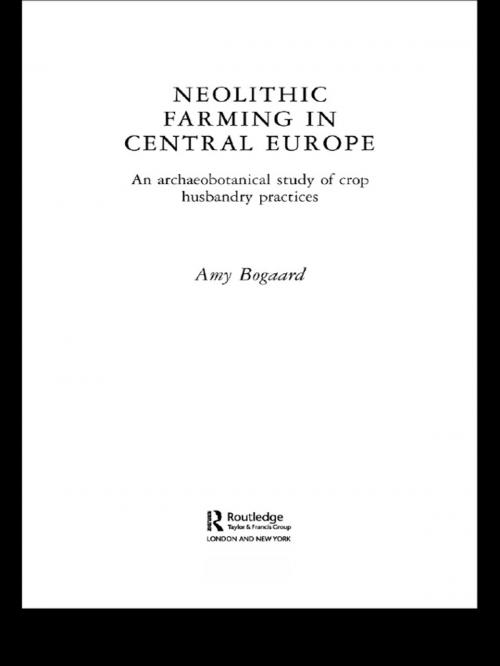Neolithic Farming in Central Europe
An Archaeobotanical Study of Crop Husbandry Practices
Nonfiction, Social & Cultural Studies, Social Science, Archaeology| Author: | Amy Bogaard | ISBN: | 9781134344574 |
| Publisher: | Taylor and Francis | Publication: | September 16, 2004 |
| Imprint: | Routledge | Language: | English |
| Author: | Amy Bogaard |
| ISBN: | 9781134344574 |
| Publisher: | Taylor and Francis |
| Publication: | September 16, 2004 |
| Imprint: | Routledge |
| Language: | English |
Neolithic Farming in Central Europe examines the nature of the earliest crop cultivation, a subject that illuminates the lives of Neolithic farming families and the day-to-day reality of the transition from hunting and gathering to farming.
Debate surrounding the nature of crop husbandry in Neolithic central Europe has focussed on the permanence of cultivation, its intensity and its seasonality: variables that carry different implications for Neolithic society.
Amy Bogaard reviews the archaeological evidence for four major competing models of Neolithic crop husbandry - shifting cultivation, extensive plough cultivation, floodplain cultivation and intensive garden cultivation - and evaluates charred crop and weed assemblages.
Her conclusions identify the most appropriate model of cultivation, and highlight the consequences of these agricultural practices for our understanding of Neolithic societies in central Europe.
Neolithic Farming in Central Europe examines the nature of the earliest crop cultivation, a subject that illuminates the lives of Neolithic farming families and the day-to-day reality of the transition from hunting and gathering to farming.
Debate surrounding the nature of crop husbandry in Neolithic central Europe has focussed on the permanence of cultivation, its intensity and its seasonality: variables that carry different implications for Neolithic society.
Amy Bogaard reviews the archaeological evidence for four major competing models of Neolithic crop husbandry - shifting cultivation, extensive plough cultivation, floodplain cultivation and intensive garden cultivation - and evaluates charred crop and weed assemblages.
Her conclusions identify the most appropriate model of cultivation, and highlight the consequences of these agricultural practices for our understanding of Neolithic societies in central Europe.















